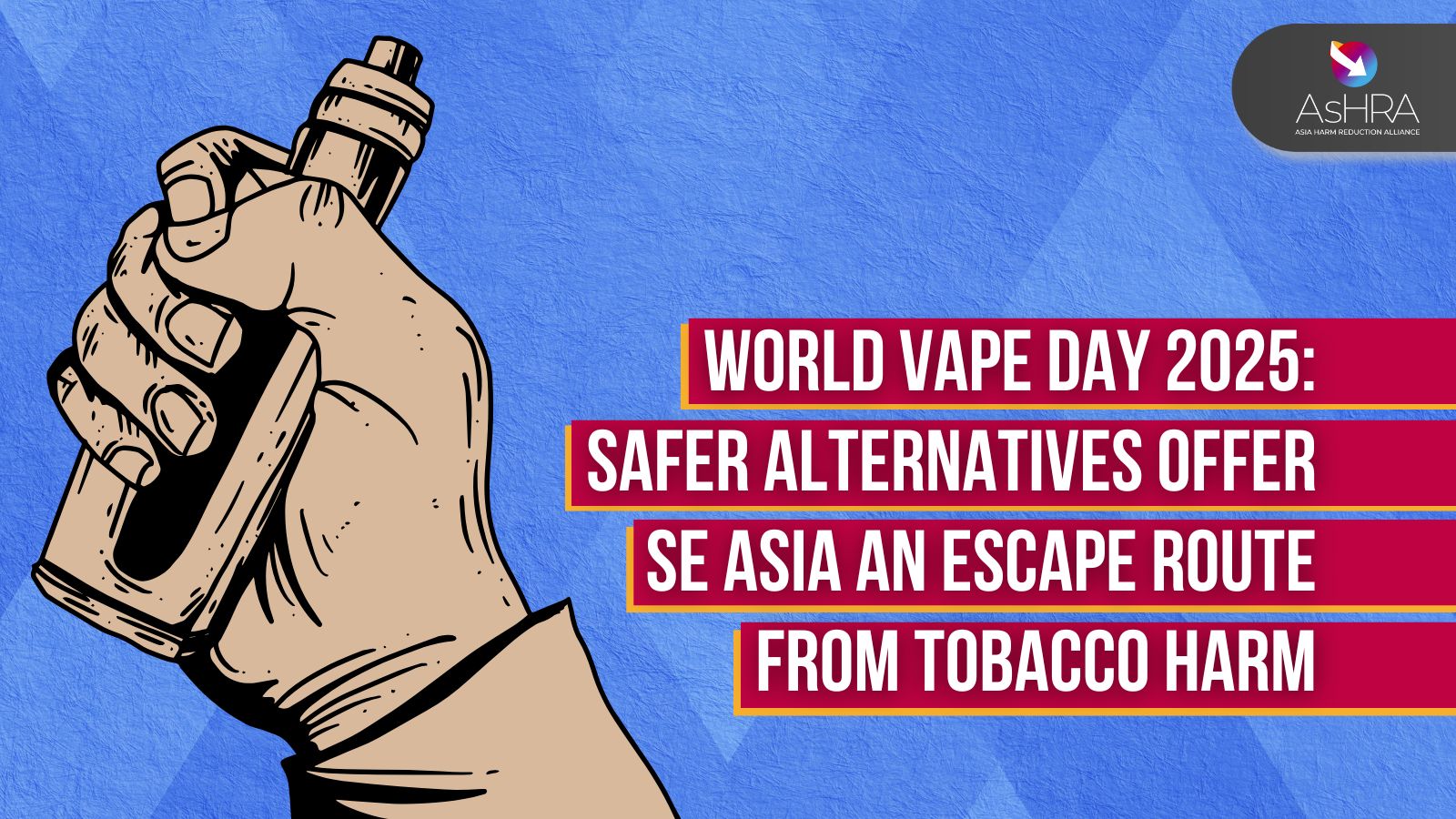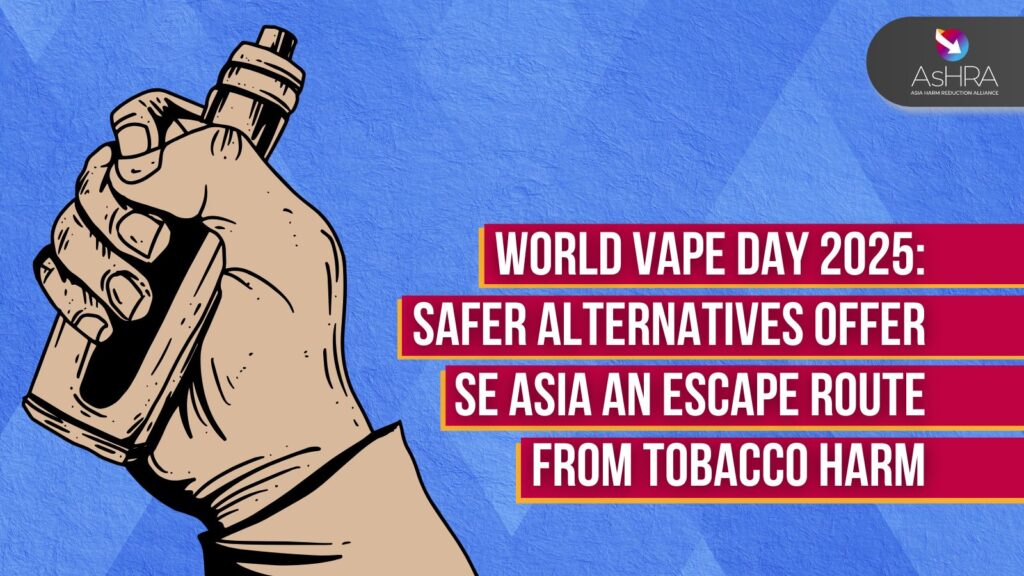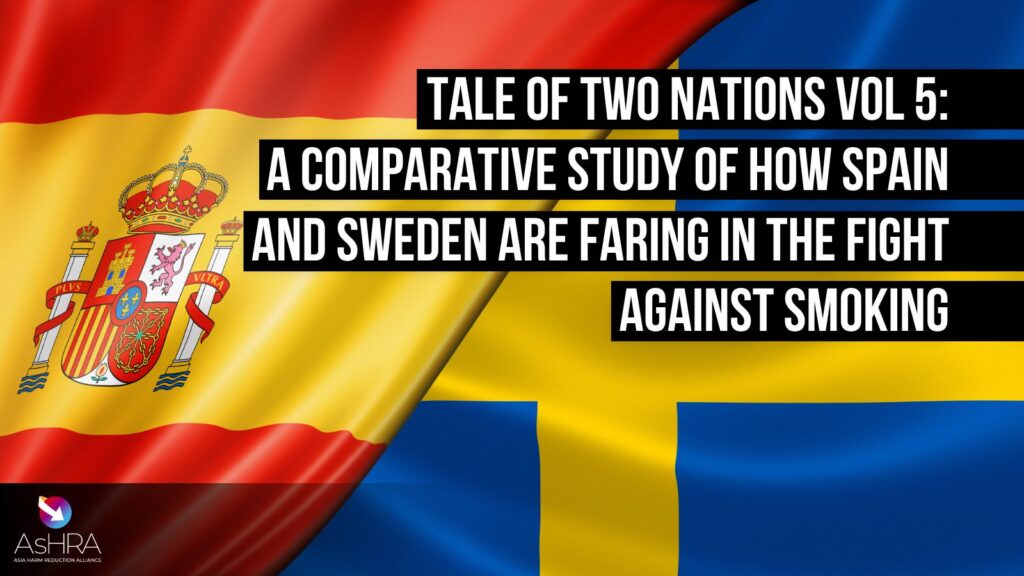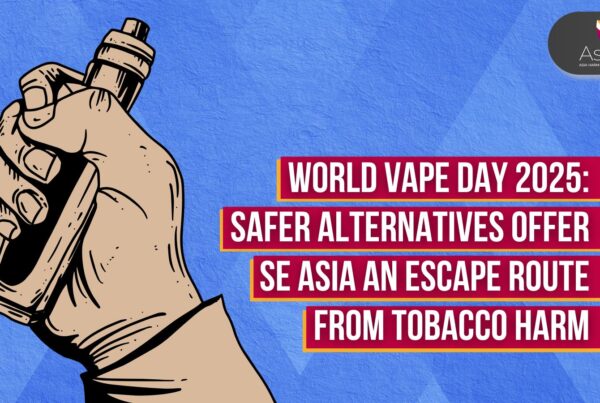Singapore May 30, 2025 – As World Vape Day 2025 is marked globally, the Asia Harm Reduction Alliance (AsHRA) is urging governments across Southeast Asia to recognize the critical role e-cigarettes and other smoke-free alternatives can play in addressing the region’s growing tobacco burden.
Southeast Asia is home to over 90% of the world’s smokeless tobacco users and sees more than 95,000 new oral cancer cases every year. Products like gutkha, paan, zarda and naswar are often homemade, unregulated and culturally entrenched – but contain over 30 carcinogens. In India alone, one person dies from oral cancer every hour.
Yet harm reduction is largely ignored. Instead of banning toxic products and promoting safer alternatives, many Southeast Asian governments restrict or criminalize innovations that could save lives.
E-cigarettes, unlike smoked or unrefined tobacco, eliminate combustion – the main cause of cancer and heart disease. They offer adult users a much safer way to consume nicotine, free from tar and toxic residues. In areas plagued by oral disease, switching could reduce cancer rates, improve gum health and restore quality of life.

Misinformation remains rampant: 78% of users in low- and middle-income countries falsely believe that nicotine causes cancer. While addictive, nicotine is not the main culprit – combustion and unregulated residues are.
Dr. Delon Human, founder of AsHRA, says: “Mounting evidence from countries like Sweden and the UK shows smoking rates have dropped to historic lows due to widespread access to e-cigarettes and nicotine pouches. Yet Southeast Asia continues to adopt punitive bans on these products or abstinence-only frameworks.
“On World Vape Day, it’s time to recognize that these approaches not only fail to deter tobacco use but drive it underground, away from quality control and harm reduction support.”
AsHRA calls on governments to take immediate steps:
- Lift counterproductive bans on e-cigarettes and replace them with evidence-based, risk-proportionate regulation.
- Ensure adult-only access through product standards, packaging rules and marketing controls.
- Launch educational campaigns to correct myths about nicotine and inform users about safer alternatives.
- Encourage dental professionals to advocate for switching to non-combustible nicotine options to reduce oral disease.
Dr. Delon Human concluded: “Vapes and other safer alternatives to cigarettes are not a threat – they are an opportunity to reverse decades of harm, prevent cancer and transform oral health across the region.
“The region’s health future depends not on prohibition but on pragmatic, compassionate policy that prioritises people over politics.”
Related Posts
 Time to support Filipino vape law, not relitigate it
Time to support Filipino vape law, not relitigate it
Time to support Filipino vape law, not relitigate it
 Greens’ Plan To Legalise Nicotine Vapes Lauded
Greens’ Plan To Legalise Nicotine Vapes Lauded
Greens’ Plan To Legalise Nicotine Vapes Lauded
 Taiwan Vaping Ban Disappointing For Its Many Smokers
Taiwan Vaping Ban Disappointing For Its Many Smokers
Taiwan Vaping Ban Disappointing For Its Many Smokers
More about
Alcohol Harm Reduction
More about





